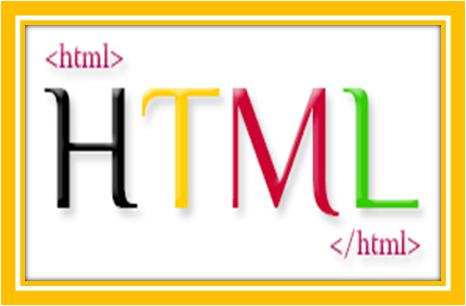Basic HTML Tutorial for Beginners

HTML stands for “Hyper Text Markup Language”. This language is used to describe web pages by using simple and ordinary text. HTML is the basic requirement of web programming and is extremely user friendly. This language is neither complex nor case sensitive. In fact, you can easily learn it and apply it on your website. Moreover, you can bring modifications in your web pages by adding different tags like Document, Text, Graphic formatting, linking, listing along with dynamic attributes and properties. To learn more about HTML, firstly you have to understand its basic terminologies and keywords which will eventually help you to speed up your learning process.
Instructions
-
1
Web Browsers
Web browsers are the applications that permit you to view HTML document or web pages from your laptop or any other system connected to internet.
-
2
Tags
Tags are the basic commands that you give in your HTML web page/document, and each tag contain its separate functionality. Commands are placed within these “<” and “>”. Some tags are starting and ending indicators, and some tags are used for casual changes such as; < big> makes the inside text bigger and so on. Stop tags are similar to starting tags only “/” is added in its start i.e. by using starting and stopping tags for some text means that lies within the container. But all tags do not require containers permanently.
-
3
Meta Data in HTML
Meta data is most commonly used term in HTML. It is usually known as the meta keywords tag, and is written in HTML in the given below format;
This meta is not considered as much important. Since in many of the search engines, meta tag is not used because a web page writer has a strong control over it to easily manipulate it. Conversely, most of the web page writers try to put random keywords into the keywords tag, expecting that the page would be optimized for those particular words.
-
4
Containers
Containers are the specific area that is enclosed by starting < start> and stopping tag and where we add functional commands. It is a single tag that encloses whole document, some contain listing, and other contains single word. Most commonly faced problem is that when someone forgets to insert stop tag or closing of container, it affects the entire document. So make sure to track your defined containers.
-
5
Pixels
Pixels are used for measurement purposes in a computer. It is just like we measure resolution of a computer screen in pixels. A computer screen displays many small dots horizontally and vertically, and we call them pixels. Pixels set a standard size for images, as 100*50 size of an image always come up as the similar virtual size. It may vary in size depending upon monitor resolution.
-
6
Relative and Absolute Links
These are the links styles used to connect web pages with other wp-content/uploads or pages, relative links look like
this/~ahetting/stepbystep.html.
It tells the link about where to look for required page or file, but it leaves the attached server as original page and required line in the same directory (server/folder).
Similarly, absolute link format is as
http:/techonology.learning.edu/~ahetting/stepbystep.html.
It contains whole link address of sough after page. They are having the same goal, but difference occurs in its benefits and disadvantages.
If you are moving a folder along with its web pages and relative links to a new server, then you don’t need to change anything and links would stay secure. On the other hand, if you try to move a single page from the folder then links would be broken, as other pages lie in different server (directory/folder). Absolute links have the contrary result; if you move one file then its links will be fine to go.







